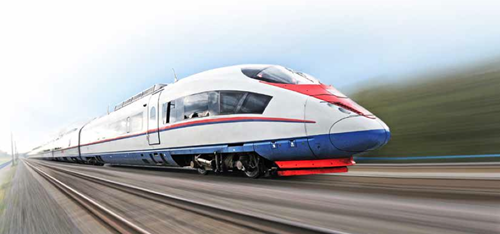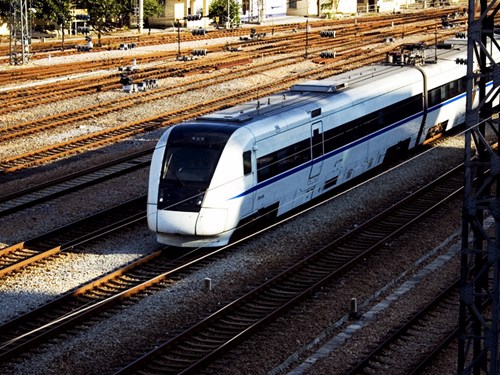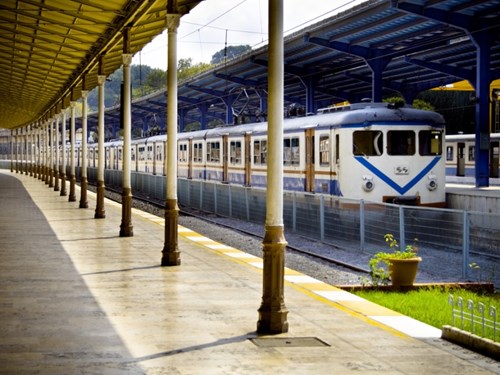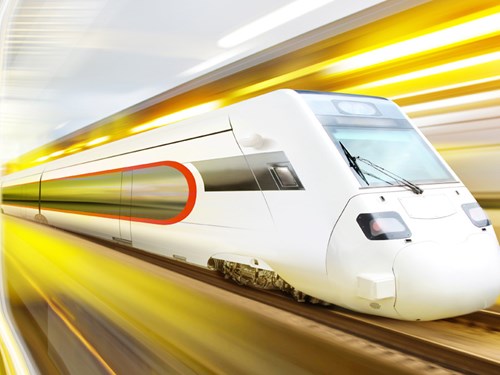Huawei

Visiting address
Longgang District, Bantian, Huawei Area H
518129
Shenzhen
Postal address
Longgang District, Bantian, Huawei Area H
Shenzhen , 518129
Contact person
Vivian LiJoin our community for FREE today!
Create and share your own profile
Join the discussions
Publish your own items
Subscription to our Weekly eNewsletter
Get connected with Mass Transit Professionals Worldwide
FREE membership benefits
- * create and share your own profile
- * join the discussions
- * publish your own items on Mass Transit Networkmanage news, jobs, tenders, companies, events, showcases, educations, associations and literature.
- * subscribe to our eNewsletter
Company information
A Better Connected Railway

As a leading ICT solutions provider, Huawei is committed to providing innovative and customized products, services and solutions to create long-term value and growth potential for its customers. Together with partners, Huawei offers solutions for vertical industry and enterprise customers globally including government and public sectors, transportation, power grids, energy, and finance, as well as commercial enterprise in many fields. These innovative and leading solutions cover network infrastructure, UC&C, cloud computing & data center, and industry application solutions. Through continuous customer-centric innovation, Huawei have established end-to-end advantages in Telecom Network Infrastructure, Application & Software, Professional Services and Devices.
With comprehensive strengths in telecommunication technologies, Huawei has gained a leading position in the All-IP convergence age including solutions in railway communications where a number of advanced Huawei’s ICT solutions were selected along 78,000+ km of railway lines globally. Huawei’s ICT solutions cover rail-operational voice and data communication (GSM-R) as well as non-operational communication such as LTE, CCTV, transmission networks, WIFI just to name a few. With the continuous investment and innovation in the ICT area, Huawei, the fastest growing global mobile supplier, has become a reliable partner for many railway operator and top-tier system integrator.
Company information
518129 Shenzhen
People's Republic of China
518129 Shenzhen
People's Republic of China
CA 95054 Santa Clara
United States of America
40549 Düsseldorf
Germany
Solutions
- Mass Transit Passenger Information Systems
- Mass Transit Safety Systems
Product information
Railway Operational Communication Solution

Combining GSM-R wireless, broadband backbone, and optical technologies for effective railway O&M
To implement centralized dispatch, improve management of both high-speed and heavy-haul trains, and diversify railway business, Huawei offers communications solutions that address a number of issues:
- Extremely high reliability is needed for the connectivity between dispatch centers and trains, stations, and trackside devices
- Providing wireless coverage for moving trains is challenging for rail lines that face complex geography such as mountains, tunnels, and bridges
- Traditional trackside communications infrastructure cannot meet today’s need for multi-service access and broadband transmission
Huawei meets these challenges with a series of services:
- GSM-R
- Hybrid Multi-Service Transport Platform (MSTP)
- Multi-service broadband access
Meeting railway requirements
Huawei applies multiple industry-standard technologies in innovative ways to meet today’s railway communication requirements. Huawei solutions cover three broad aspects of rail communications:
- Mission-critical dispatch
- System-wide backbone
- Broadband trackside device
GSM-R wireless network ensures reliability
Huawei’s GSM cellular technology for Rail (GSM-R) has the most comprehensive redundancy design in the industry for Network Entities (NEs). Implemented with multiple Huawei proprietary technologies and protection mechanisms, the GSM-R wireless network prevents single points of failure, ensures service security and reliability, and provides robust recovery capabilities in the event of a disaster.
Huawei’s GSM-R solution offers unique distributed base stations. These distributed stations use a patented Automatic Frequency Control (AFC) algorithm to improve the quality of radio coverage in complex environments such as mountainous areas, tunnels, railway hub stations, and classification yards.
Huawei also uses a multi-RRU co-cell technique in which six remote radio units are configured into the same cell to reduce the handover rate by 83%. Fewer handovers mean fewer chances for communication interruptions that could cause issues with train dispatching, downgrading of signaling devices, or train stoppages.
Hybrid MSTP provides reliable networking
The Optical Transport Network (OTN) and Multi-Service Transport Platform (MSTP) standards provide the ideal capabilities for implementing Automatically Switched Optical Networks (ASONs) at the rail network’s backbone, convergence, and access layers. These ASONs are protected using a variety of measures, including Multiplex Section Protection (MSP), Subnetwork Connection Protection (SNCP), and 50-ms failover protection. Offering comprehensive safeguards at the equipment, network, and service levels, the Hybrid MSTP transmission network has the ability to prevent single-point failures caused by natural disaster or human error.
Broadband transmission supports trackside multi-service access Huawei’s railway operations communication solution supports more than six types of interfaces ranging from Foreign Exchange Station (FXS) to GE. These interfaces handle access for various audio, video, and data services along railway lines, supporting emergency rescue, disaster prevention and monitoring, train safety monitoring, power system telemechanics, and railway crossing monitoring. Advanced Passive Optical Network (PON) technologies provide reliable, high-bandwidth transmission channels for communications along railway lines.
Versatile communications meet all rail requirements
The Huawei Railway Operations Communication solution offers the capabilities you need to implement a highly reliable, elastic, and evolvable end-to-end communication network. This communication network helps improve the safety and reliability of railway operations, reduce operating costs, and protect investments in infrastructure and rolling stock.
Agile Station Solution

Provides diverse innovative solutions for railway stations, including wireless positioning, mobile office, agile network, and unified platform.
Huawei Agile Station Solution is built upon Huawei’s FusionCube converged infrastructure, an agile network and unified platform integrated with innovative services enabling wireless communications for railway stations and automation of manual processes for efficient Operations and Maintenance (O&M). Rail operators benefit from services such as wireless location positioning and real-time video production surveillance for secure, visual management.
Train maintenance and repair are significant expenses for rail operators. To increase productivity, lower O&M costs, and efficiently manage the rolling stock depot, Huawei and its partners have developed solutions for railways to combine mechanic automation and information technologies.
Some major obstacles are:
- Difficult to obtain and record information about components for scheduling maintenance and repairs
- No real-time video monitoring capabilities for security, operations, and status of maintenance progress
- Repair process lacks production safety, effective risk control, and traceability
To overcome these challenges, the Agile Station Solution offers wireless positioning, mobile operations, agile network, and FusionCube unified platform.
Huawei provides a comprehensive Agile Station Solution for rail operators with the FusionCube IT-enabled platform, agile network, and integrated application services. Conceptually, the solution is designed to automate manual processes, provide reliable, video-enabled communications, simplify management of rolling stock depot, and increase O&M productivity. Key advantages of the solution are wireless positioning, mobile operations, agile network, and FusionCube unified platform.
Wireless positioning
The solution supports a positioning location precision to within 3.28 yards (3 meters), full-process visibility into production activities in stations, and complete track records of operations by using an intelligent combination of Real-Time Location System (RTLS) positioning engine + TAG + HD video surveillance. These measures facilitate tracing for risk control and ensure safety for production activities.
Mobile operations
A wireless mesh network system enables communications within the range of a station, providing wide radio coverage, high reliability, and easy management. Many techniques are used to ensure production security, including Mobile Device Management (MDM), sandbox, and L4 Virtual Private Network (VPN).
Agile network
Three networks — production safety monitoring network, station Intranet for production and office activities, and Internet data query network — are combined to form an agile network. This agile network carries production safety monitoring video, HMIS/5T data, and voice and video data for video conferences. A 5-level Hierarchical Quality of Service (HQoS) mechanism ensures the quality of the data carried over the agile network. A series of security measures, such as network border security protection for stations, network access security protection, and network transmission security protection, are utilized to build impenetrable networks for stations. In addition, the native Access Controller (AC) mechanism is embedded on boards to provide deep integration of wired and wireless approaches for station management.
Unified platform
Huawei FusionCube solution integrates over 10 application systems (including HMIS, AEI, and 5T) deployed in exiting stations. FusionCube supports deep integration with an SDK for application systems to facilitate rapid service deployment.
Huawei Agile Station Solution, with FusionCube agile network and unified platform, integrates IT systems and automation technologies, enables visualized management, and enhances the efficiency of operations. The solution comprehensively improves the maintenance productivity of railway stations.
Fusion Operations Control Center (OCC) Solution
Provides excellent performance on business platforms, converged networks, and dual-activation data centers, equipping the railway industry with secure data centers.
Huawei’s Fusion Operations Control Center (OCC) Solution provides innovative data center services for the railway industry, including high-performance service platform, congestion-free converged network, and dual-activation data center. As more services on railways are available over the Internet and the market share of railway in intermodal transport increases, rail operators need converged data centers that enable interconnectivity between systems and facilitate resource sharing. Cloud-based data centers become an ideal option for railway operations.
Huawei and its partners help solve major challenges to integrate railway services with cloud data centers such as:
- Railway service systems are built as silos, are difficult to integrate with the Internet, and services lack elasticity
- Existing Intranet computing capabilities are insufficient for services requiring high concurrent processing such as Internet booking
- Difficult to securely expand core railway businesses for future growth
Fusion OCC Solution for railways provides a secure, cloud-based infrastructure with excellent performance, converged networks, as well as dual-activation data centers for continuous services.
Solution
Huawei Fusion OCC solution provides excellent performance on business platforms, converged networks, and dual-activation data centers, equipping the railway industry with secure data centers that integrate services along with on-demand resource sharing so railways can excel in the cloud era.
High-performance service platform
Huawei’s FusionCube is a high-performance, secure platform to maximize shared resource utilization with high I/O throughput, processing, and computational analysis on mass amounts of passenger and freight data. The cloud-based, converged infrastructure delivers high IOPS performance for services that require large numbers of concurrent processing, such as ticket booking.
Congestion-free converged network
The solution’s data center integrates Huawei’s CE12800 as its core switch, which leads the industry to provide a congestion-free network for railway data centers. Using various network and equipment virtualization technologies such as Transparent Interconnection of Lots of Links (TRILL), Cluster Switching System (CSS), Super Virtual Fabric (SVF), and Virtual Server (VS), the platform eliminates network congestion, and classifies services into different hierarchies and domains, all to support flexible service deployment and continuous integration.
Dual-activation data center
FusionSphere Operating System supports the pooling of computing and storage resources and cluster deployment. Dense Wavelength-Division Multiplexing (DWDM) networks are deployed between data centers, which deliver a bandwidth of 80 wavelength times 100G/40G, with a mere delay of 0.5 ms for up to 1 km. This solution secures dual-activation for critical railway services between two data centers and ensures 24/7 continuous service availability.
Huawei Fusion OCC solution helps rail operators build elastic Big Data platforms that support better online services and inter-modal transport for the railway industry. The solution provides services that require huge numbers of concurrent processing, continuous service integration, and reliable disaster redundancy.
Digital Train Solution

Provides a series of innovative services for the railway industry, including train-ground reliable backhaul, high density Wi-Fi coverage, and onboard platform.
Huawei’s Digital Train Solution automates processes and services for the railway industry, providing reliable train-ground backhaul, high-density Wi-Fi coverage, and an onboard platform to keep pace with passenger expectations for mobile, Internet services while traveling. Huawei helps rail operators focusing on strategies to improve wireless communications and enhance automated train control overcome challenges such as:
- Lacking a high-density network that can provide reliable, continuous coverage for increasing mobile demands of passengers on trains
- Most onboard services are offline and do not have real-time operations capabilities
- Railways traverse complicated environments with numerous communications standards that are unable to adopt uniform access
Solution
Huawei developed the Digital Train Solution for advancements in railway communications, including broadband ground-vehicle reliable backhaul, high-density Wi-Fi coverage, and onboard open platform. These innovations enable the rail industry to enrich the mobile travel experience for passengers and refine operations.
Reliable train-ground backhaul
LTE networks are deployed along railway lines, around railway stations, and in rolling stock depots. Locomotive status data is transmitted through the LTE networks in real-time to the central locomotive monitoring platform for processing. If abnormalities are detected, preventative measures are invoked to reduce waste and improve efficiency. In addition, network deployment is simplified as standard GSM cellular technology for Rail (GSM-R) and LTE networks share base stations and other network infrastructure. Multiple communications standards are supported along the entire railway line.
High-density Wi-Fi coverage
A number of proprietary Huawei technologies are used to enable Wi-Fi coverage on trains with high passenger density, including Clear Channel Assessment (CCA) optimization, offline control, and multi-user scheduling. Flexible networking is supported for various trains. The Wireless Distribution System (WDS) and mesh networking schemes can be implemented on new deployments or to change old train networks.
Easy scalability for onboard services
Huawei’s onboard gateway AR511 is integrated with the Android platform, has open standards, and can be flexibly configured to support third-party value-added services such as energy consumption monitoring and ticket booking.
Huawei Digital Train solution helps railway operators build a high-bandwidth train-ground communication platform with wireless onboard services for passengers to improve their travel experience and real-time locomotive status monitoring to improve operations.
Mass Transit eLTE Multi-Service Unified Carrier Solution

Unified network supports train-ground communications, video monitoring, and onboard passenger services
To support data services for urban rail transit that includes train traffic control, train maneuvering, onboard Passenger Information Service (PIS), and video monitoring, Huawei offers an LTE-based solution that overcomes the limitations of previous technologies:
- Legacy communications systems run on separate networks, resulting in high costs and complex Operation and Maintenance (O&M)
- Communications-Based Train Control (CBTC) signals are vulnerable to interference
- A Wi-Fi AP’s range is only 219 yds (200m), so trains moving at 75 mph (120 km/h) cause frequent handovers, degrading user experience
Huawei’s LTE solution eliminates these issues with dual-network communications on dedicated frequencies; unified long-distance train-ground communications; and multiple services over a unified transmission network.
Unify communications with high-redundancy wireless coverage
Huawei’s LTE-based solution ensures reliable communications using a dual-network architecture and redundancy designs at the system, device, and board levels. The use of dedicated-frequency LTE networks and technologies such as Interference Rejection Combining (IRC) and Inter-Cell Interference Coordination (ICIC) enhances the network’s anti-interference capability.
Unified train-ground communications simplify maintenance
Huawei’s LTE network provides long-distance coverage, reducing the number of devices that are needed in complex environments such as tunnels. A uniform network management system for network and terminals simplifies the system O&M. In addition, no network devices are needed in tunnels, further simplifying network O&M. A single network supports multiple services, including CBTC, PIS, trunking, and CCTV. The LTE solution ensures network reliability and QoS of critical services using multiple schemes such as radio link budget, 9-level QoS, and a backbone transport network protection switching time less than 50 ms.
LTE networks carry multiple services for high-speed trains
The Huawei Mass Transit eLTE Multi-Service Unified Carrier Solution offers a highly reliable train-ground convergent communication platform supporting high-speed trains. The LTE train-ground communication system supports 80 Mbit/s throughput for trains traveling at speeds as high as 268 mph (431 km/h). With this solution, a unified network carries multiple services, improving operating efficiency and reducing both network construction and O&M costs.
Press releases
- China Eastern Airlines and others launch 5G smart travel system
- Huawei and Bombardier to deliver turnkey communication in Bangkok
- Huawei Smart City OS debuts at CEBIT 2018
- Huawei attends the 7th World Passenger Symposium to showcase Aviation ICT Solutions that improve the passenger experience
- 5th International Railway Summit to be hosted in association with UIC and Huawei
- Huawei Digital Railway Solution supports new Mombasa-Nairobi railway
- Huawei and Hamad International Airport enter into a strategic partnership for co-innovation
- Huawei’s Digital Railway Video Surveillance Solution Wins ProRail's IPC Project
- Huawei to provide Data Center solution to Kazakhstan Railway
- Huawei releases Digital Urban Rail 2.0 Solutions at InnoTrans 2016
- Huawei Helps Kenya to Build a Future-oriented Railway Operational Communications Network
- Huawei Serves up Digital Communications for Railways of the Future
- Huawei Launches its Digital Railway 2.0 Solution at InnoTrans 2014 Leading the Way to a Future of Better Connected Railways



